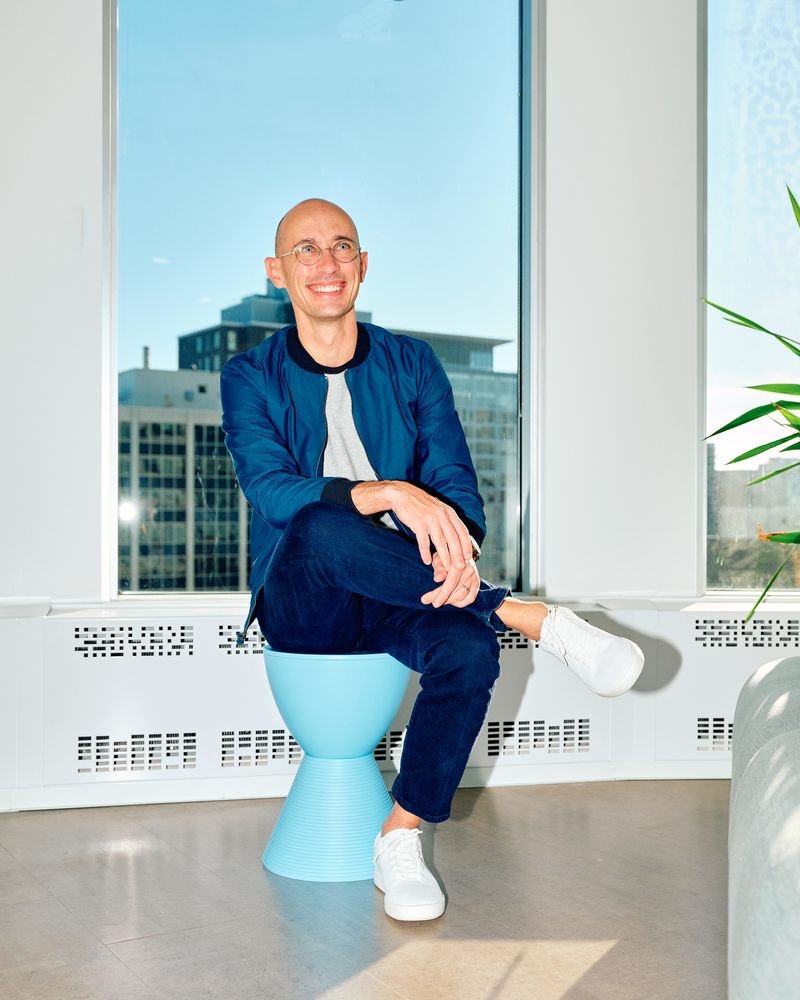Last February e-commerce company Shopify Inc. replaced the “Ottawa, Canada” dateline that began its press releases and earnings reports with a strange new one: “Internet, Everywhere.” The geographical shift came at the insistence of Shopify’s founder and chief executive officer, Tobi Lütke, who tends to view such matters through the prism of cold, hard logic. In May 2020, only a few months into the pandemic, he’d made the early, seemingly rash decision to terminate the leases on Shopify’s offices in Ottawa and six other cities, declaring that his entire 7,000-person workforce would remain virtual—forever. Shopify, he concluded, was now omnipresent, located with its employees and customers in the digital ether. His senior execs were perplexed at the strange phrasing, but they knew better than to argue.
The dateline thing may be a bit pompous and a little too cute, but after an almost two-year run that’s turned the quiet enterprise-tech company into a global e-commerce power, Lütke has earned some creative license. Since he started Shopify 15 years ago, the company has sold software that allows about 2 million merchants worldwide to run websites—free from the complicated embrace of Shopify’s chief rival, Amazon.com Inc. For $30 to $2,000 a month, Shopify offers sellers more than a dozen services to run an online store, from the actual e-commerce website to inventory management to payment processing.
Its technology now undergirds the websites of giant retail chains such as Staples Inc. and Chipotle Mexican Grill Inc.; recently ordained public companies that grew up on the platform, including shoemaker Allbirds Inc. and medical scrubs maker Figs; and the retail side-hustles of Kylie Jenner, Taylor Swift, Lady Gaga, and other celebrities. But the company’s biggest impact has been at the smaller end of the scale, in the vast constellation of mom and pops, venture-capital-backed startups, influencer mini-moguls, twee entrepreneurs, merch heads, and more obscure outfits, like Offlimits—a two-person New York City startup trying to reinvent, of all things, breakfast cereal.
What Zoom was to corporate America during the early days of the pandemic, Shopify was to small-business owners, many of whom had never sold a single product online until it became the only way they might stay alive. At the time, Shopify, a little-known company powering some 1 million merchants, was more likely to be confused with the music service Spotify than synonymous with e-commerce. But when businesses everywhere had to close en masse, Shopify armed them with the tools to become instantaneous online stores. While Amazon’s reputation as a vampiric partner to merchants was reinforced in 2020 by sellers’ testimony in front of a congressional subcommittee investigating Big Tech, Shopify suddenly emerged as their biggest ally.
The global quarantine boosted the company’s market capitalization from $46 billion in early 2020 to $177 billion today. In 2020 its sales jumped to $2.9 billion, an 86% increase from 2019. Over the recent Black Friday / Cyber Monday weekend, Shopify merchants brought in $6.3 billion in sales, a 23% rise from a year earlier. Now Canada’s most valuable company, it accounted for 8.6% of U.S. e-commerce sales in 2020, well behind Amazon’s 39% but ahead of Walmart and EBay, according to EMarketer. “The pandemic just turbocharged them. It’s ridiculous,” says Rick Watson, an e-commerce consultant and host of Watson Weekly, a podcast about online selling.
As the success of Zoom, Peloton, and other pandemic breakouts starts to fade, Shopify is working furiously to keep its momentum going and weave itself into the zeitgeist. Recently it hired a veteran of Kanye West’s Yeezy brand to run a new influencer program, opened a slick entrepreneurs’ hub in Manhattan, teamed with the actual Spotify to help musicians become merch machines, and rolled out a feature that allows shopkeepers to sell unique digital artworks—“I am creating NFTs,” tweeted Martha Stewart, now a Shopify merchant, in October, tagging the company. Pharrell Williams, who sells his skin-care line on Shopify, is a fan, too. “If you’re able to come up here and be part of this platform, you’re in great, great, great company,” the producer-rapper-singer-entrepreneur told a group of business owners over Zoom at the company’s annual conference in October.






